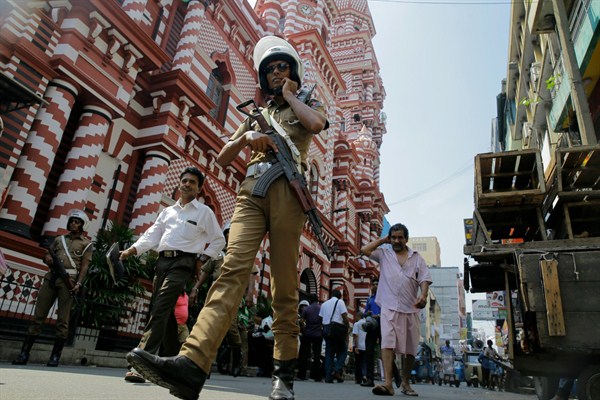Large-scale terrorist attacks destroy lives, but they also have the power to upend political realities. That, after all, is their goal. The Easter Sunday attacks in Sri Lanka are no exception. Whatever the larger objectives of the perpetrators of the suicide bombings at three churches and three hotels, their actions have sent political shockwaves across Sri Lanka, just as it prepares for presidential elections later this year.
The political reverberations of the attacks were almost immediate. As Sri Lankans grappled with the human toll—more than 350 dead and hundreds more injured—revelations that authorities had received detailed warnings about an impending attack pointed to massive failures of intelligence and policing. The news was devastating for victims’ families.
That simmering animosities within Sri Lanka’s divided government may have accounted for those failures made the news even worse—which the opposition, led by former President Mahinda Rajapaksa and his family, seized on. Within hours of the bloodshed, infighting within the government burst into public view. It seemed likely that a constitutional crisis that unfolded late last year, pitting the president against the prime minister, had hampered the kind of security cooperation that could have prevented the attack.

